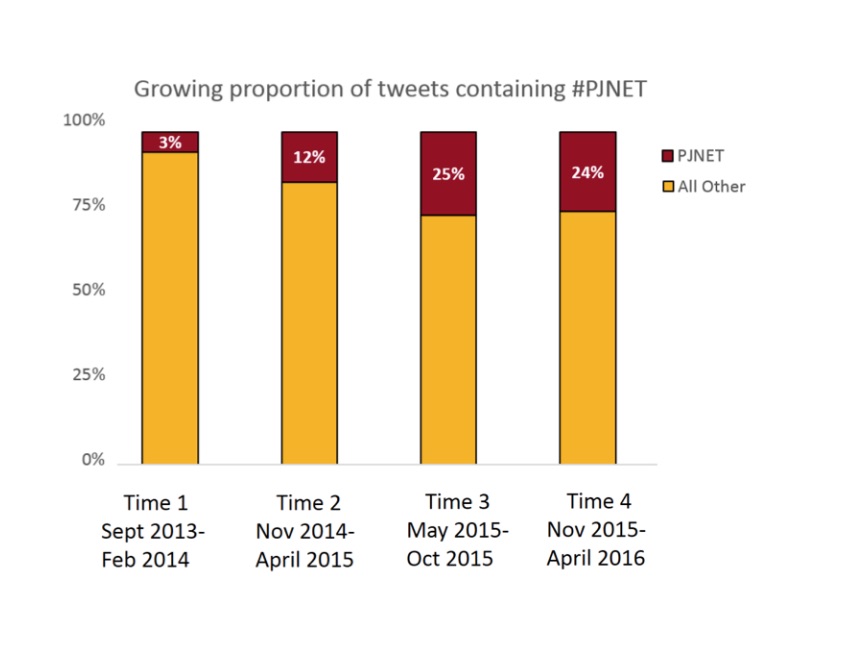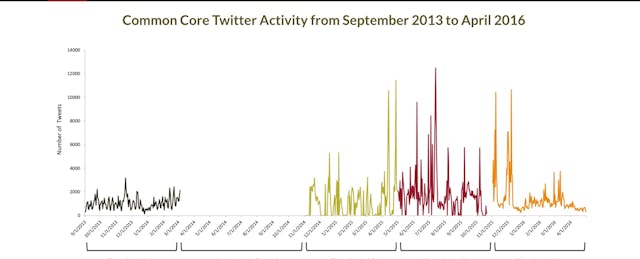A team of researchers from the Consortium for Policy Research in Education at the University of Pennsylvania’s Graduate School of Education has been digging deeply into social media data to examine the roots of the public dialogue around Common Core. In the most recent chapter of work released, the researchers identify one group that accounted for "roughly a quarter of all Common Core-related activity on Twitter" during the 32-month time period they studied. (The researchers looked at approximately a million tweets shared between September 2013 and April 2016.)
That group is the Patriot Journalist Network (PJNET), a group affiliated with a for-profit church in Tallahassee, FL. What's more, the researchers note that a robo-tweeting mechanism, designed by Mark Prasek, founder of PJNET, sent messages on behalf of PJNET members, "removing the preceding RT (retweet) or MT (mention) before a tweet is sent, and also by sending it from an individual’s account, the machine makes the tweeter appear as the true author of its messages."

The overall goal of the #CommonCore project is to put data to work in answering how social media is sharing American politics and changing social policy. It focused on CommonCore, the researchers wrote, because it has been such a flashpoint in the debate around education policy. Within its interactive site, the researchers created a "Tweet machine," that aims to illustrate how Common Core tweets have frequently been framed around trigger issues, such as concerns about meddlesome government activity or greedy corporate interests.
This project received funding support from the Milken Family Foundation, the Gates Foundation and the Consortium for Policy Research in Education. Even so, the authors observe: "The analyses, findings, and conclusions are the authors’ alone."
Next up on the PJNet agenda? The Washington Post predicts the group will be supporting the Supreme Court nomination of judge Neil Gorsuch.


